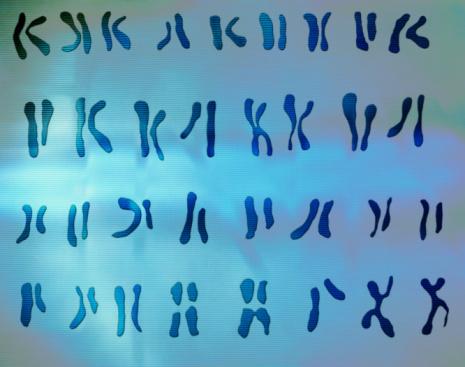Scientists discover male-only gene that protects against leukaemia
Understanding the genetic mutations at the root of devastating blood cancer is ‘key to developing targeted drugs,’ say experts

Your support helps us to tell the story
From reproductive rights to climate change to Big Tech, The Independent is on the ground when the story is developing. Whether it's investigating the financials of Elon Musk's pro-Trump PAC or producing our latest documentary, 'The A Word', which shines a light on the American women fighting for reproductive rights, we know how important it is to parse out the facts from the messaging.
At such a critical moment in US history, we need reporters on the ground. Your donation allows us to keep sending journalists to speak to both sides of the story.
The Independent is trusted by Americans across the entire political spectrum. And unlike many other quality news outlets, we choose not to lock Americans out of our reporting and analysis with paywalls. We believe quality journalism should be available to everyone, paid for by those who can afford it.
Your support makes all the difference.Scientists have discovered the first example of a gene that is only found in one sex and provides protection against cancers including an aggressive form of leukaemia.
The gene is only found on the Y chromosome which, until today, was thought to only carry genetic information that leads to an embryo developing as a male, rather than a female, foetus.
It appears to offer an extra layer of protection against acute myeloid leukaemia (AML), a development researchers at the Wellcome Sanger Institute and the University of Cambridge said changed the way the Y chromosome was viewed and could lead to new treatments.
Each year, about 2,600 people in the UK are diagnosed with AML, an aggressive blood cancer that develops in cells of the bone marrow and leads to life-threatening infections and bleeding.
Mainstream treatments for the condition have remained unchanged for decades and just 20 per cent of patients survive for five years after diagnosis.
Women have two X chromosomes whereas men have one X and one Y chromosome. The X and Y chromosomes share many genes, but a small number of genes, including UTY, are only found on the Y chromosome.
The team studied the X-chromosome gene UTX in human cells and in mice to try to understand its role in AML.
They found the loss of the UTX, which is known to be mutated in many tumours, hastens the development of AML. This is because the healthy gene performs a key function in coordinating cellular proteins and the gene expression.
The researchers also found that UTY, a related gene on the Y chromosome, protected male mice that were lacking UTX against developing AML, because it can stand in and perform the role of UTX in preventing the unchecked growth of cells.
The study, published in Nature Genetics, showed that in AML and in several other human cancers types, loss of UTX is accompanied by loss of UTY, meaning the cancer-suppressing role of UTY extends beyond AML.
Lead author Dr Malgorzata Gozdecka, of the Wellcome Sanger Institute, said: “Previously it had been suggested that the only function of the Y chromosome is in creating male sexual characteristics, but our results indicate that the Y chromosome could also protect against AML and other cancers.”
Professor Brian Huntly, of the University of Cambridge and a consultant haematologist at Cambridge University Hospitals NHS Trust, said: “It is known that men often lose the Y chromosome from their cells as they age, however the significance of this was unclear.
“Our study strengthens the argument that loss of the Y chromosome can increase the risk of cancer and describes a mechanism for how this may happen.”
Dr Alasdair Rankin, director of research at the charity Bloodwise, said: “Survival rates for AML remain tragically low, with current treatment that involves intensive chemotherapy, often combined with a stem cell transplant, only curing a small proportion of patients.
“This important research helps build a fuller picture of what goes wrong genetically as this highly aggressive leukaemia develops. Understanding this process is key to developing targeted drugs for AML, allowing us to move away from gruelling and often ineffective chemotherapy-based treatments.”
Additional reporting by PA
Join our commenting forum
Join thought-provoking conversations, follow other Independent readers and see their replies
Comments